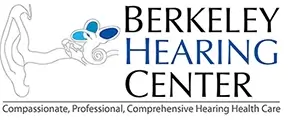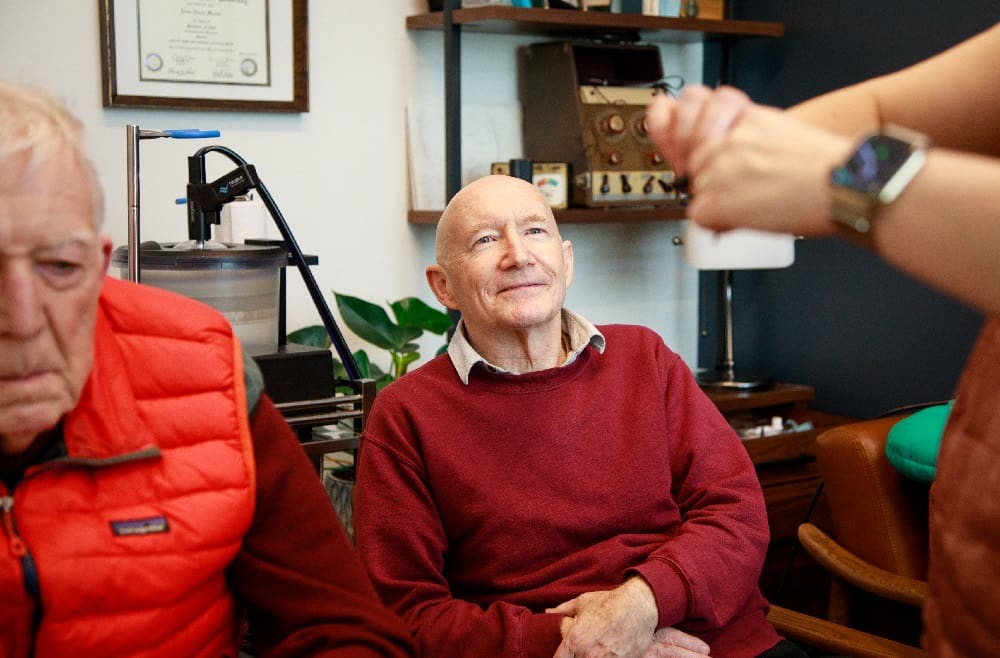2022-06-08
Jonathan Lipschutz Audiologist, M.S., F-AAA, Co-Owner
Recently, there has been an increasing interest in the correlation between hearing loss and cognitive decline. It appears that this applies not only to the elderly patient in a nursing home but also to midlife hearing loss in average people.
The key takeaway message is that hearing loss modification, such as hearing aids, can have a positive impact, decreasing the risk of dementia in the general population. This is exciting news for those who might have noticed some changes in their hearing, particularly in crowded environments or at higher frequencies. But there is more.
There are studies underway to determine why there may a strong association between hearing loss and cognitive decline. The point is that you can be proactive.
By adding a Cognivue’s cognitive screening tool to a standard diagnostic hearing evaluation, we have a better chance of improving overall results with hearing aids. And that translates into a better overall quality of life for you and your loved ones.
Why an Audiologist Would Check Your Brain Health
Okay, here is the double whammy. The fact is many people reading this never want to admit to having a hearing loss and they sure don’t want to admit to having lost their cognitive abilities. Denial and avoidance are powerful motivators.
Even subtle changes in our hearing can be significant, though. Losing out on conversations or missing the crucial line in the new Top Gun movie sequel can make us wonder if we just don’t understand or instead, we can’t hear.
The lines become blurred between hearing loss and possibly cognitive decline. In a way, many of us are relieved when we discover our minds are intact, but we couldn’t hear well.
This is not a new dilemma. The correlation between hearing loss and cognition has been under active study for almost 40 years. In fact, other conditions such as depression, falls, and frailty have been linked to hearing loss as well.
Just this week there was a popular news report suggesting that if we walk slower, we may have a greater chance of developing dementia. The suggestion is that with age, we develop other medical conditions, all of which can contribute to our overall health, and hearing loss may be one such condition like walking slowly.
But what can we do? Getting our hearing tested is a good first step, but there is more we can do to be proactive. It is a scenario where no one knows what comes first, the chicken or the egg, the hearing loss or cognitive decline.
Some hypotheses suggest that by our not hearing as well, we work harder, taking on a larger cognitive load. Therefore, we struggle to keep up with conversations or listening to TV, movies, or lectures. The belief is that the combination of putting both our ears and our brains into overdrive may hasten our own relevant brain structural changes.
Enter cognitive screening at Berkeley Hearing Center as an added helpful step in hearing evaluation and treatment.
Cognitive Screening – What Is It?
Cognitive screening is an FDA-cleared assessment done on a computerized screen that evaluates cognitive function. Cognivue is the advanced technical solution used to perform the cognitive screening.
Cognivue assesses a person’s cognitive function during a quick, non-invasive, and comprehensive appointment.
The psychophysics behind the test have been researched and developed over the last 15 years to produce what is available today, so it is highly respected in the medical world.
Cognivue evaluates six cognitive areas of the brain:
Visuospatial – motor skills, visual acuity
Executive Function/Attention – shape and motor perception
Naming/Language – letter and word perception
Memory – letter and word memory
Delayed Recall – shape and motion memory
Abstraction – being able to think about and follow abstract thoughts
Cognitive screening also measures your physical reaction time and speed at processing what is said or happening.
https://berkeleyhearing.com/wp-content/uploads/2022/06/Berkeley-CTA-banner.png
How Cognivue Works
The test takes fifteen minutes, and it is self-administered.
It begins with an introductory video, which involves two practice sessions first.
The ten-minute evaluation begins.
Once completed, a one-minute video will play explaining what happens next.
This is not a test with a keyboard or a list of right and wrong answers. There’s simply a wheel that you turn to select the picture you think makes the most sense to what is asked.
Once completed, your audiologist gets an immediate overview of the results to review with you, with suggested customized follow-up steps.
Benefits of Cognitive Screening
Because cognitive screening looks for additional health aspects that impact your hearing, it means we — at Berkeley Hearing Center — can diagnose and treat anything we might have missed before.
We understand the scope of your hearing loss better because we can see everything that might be affecting it.
We can test further for anything we find and possibly refer you for treatment for other aspects of your health.
The assessment is private and done by you alone – there is no one present to judge your answers.
Cognitive screening can detect early signs of cognitive decline that you and everyone around you might not have even noticed yet, thus facilitating the best early preventative treatment plan possible.
A yearly cognitive assessment gives us an excellent view of your cognitive abilities and allows us to monitor for any changes so we can adjust your hearing treatment to match them, thus optimizing your hearing.
Considering a Cognitive Screening?
It can be easy to miss the earliest signs of cognitive decline, but we’re here to help with that. Book a cognitive screening for yourself or a loved one if you are concerned about this and see how it can help your hearing treatment plan.
We care about your hearing and overall health at Berkeley Hearing Center, and we’re here anytime you need us. Give us a call with any questions. We look forward to helping.
Jonathan Lipschutz Audiologist, M.S., F-AAA, Co-Owner






